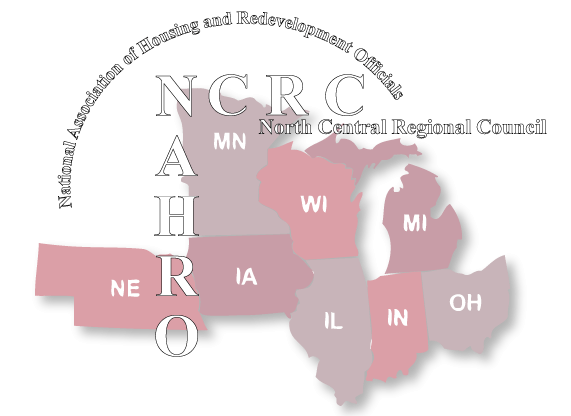
Chicago Housing Authority’s Gene Jones Knows It’s All in the Relationships
Although no one knows for sure what changes the new presidential administration will bring to the U.S. Department of Housing and Urban Development (HUD), the Chicago Housing Authority (CHA)’s current CEO has opted not to wait around for direction as the new inhabitants of 1600 Pennsylvania Avenue find their feet. HUD currently supports nearly 5 million households with rental assistance via the HUD 2017 annual budget of $49 billion that also goes toward supporting programs intended to mitigate homelessness and urban poverty. CHA and agencies like it around the country are working hard to spotlight these important, broader issues while simultaneously communicating with and expanding their relationships to include more private owners who can supply affordable housing to lower-income Americans. Although in some cases this communication and relationship-building can be difficult as bureaucratic changes can create chronic shifts in leadership, Chicago’s CHA chief executive officer stands out as someone both capable of and dedicated to delivering his agency’s message.
In Chicago, the third-largest city in the U.S. with over 43,000 rentals and a population of 2.7 million people, the housing authority has seen three different chief executives in the past seven years. Eugene “Gene” Jones Jr. only recently celebrated his second anniversary as chief executive of the CHA, but despite a tumultuous national political scene, he is dedicated to leading the second-largest housing agency in the country in a wave of positive, pervasive change. Jones is fast becoming known for his tendency to release a “torrent” of new initiatives intended to expand relationships that CHA already has with the populations it supports while bringing additional private support of those initiatives into the fold. Whether he is dressed in a suit speaking to the Chicago Realtors Association or calling a bingo game in jeans and a polo, Jones doesn’t miss the opportunity to establish his platform for progress in affordable housing. “I can’t operate from behind a desk”, Gene said recently. “I keep moving, keep everyone accountable and having fun. At the end of the day, I know when I put my head on the pillow that I’ve touched a life of someone in the affordable housing program today”.
Starting at the Roots and Growing Fast
Jones believes that relationships he wants with investors and the larger community start by establishing roots in “the neighborhood.” Through educating his local landlords on working successfully with CHA, he believes he can position youth and families to better support themselves in a safe housing environment. For example, if you were new to the landlording scene in Chicago in mid-2013, you could have found yourself mired in confusing-albeit-well-intentioned legislative changes that might have required you to suddenly make some or all of your rentals available to participants in the CHA’s housing choice voucher program (Section 8). Finding ways to make high-quality housing accessible to low-income residents is a complex job, requiring a specific knowledge base and just the right tools. If you had been a Chicago landlord in 2013, you probably wouldn’t have known where to begin to find a new tenant for your property or even the first steps to learning more about affordable housing and CHA. If you had opted to leave landlording due to these difficulties, then the affordable housing shortage in the area would simply have become more acute. Jones has implemented a number of new programs to change that.
CHA’s mission states they leverage the power of affordable, decent, safe, and stable housing to help communities thrive and low-income families increase their potential for long-term economic success and a sustained high quality of life. They are supposed to help you, the housing provider, with implementing CHA’s program of public housing and continuing the agency’s mixed-income-focused strategic initiative intended to help build strong, vibrant communities throughout Chicago. However, many landlords remain unaware of the resources that the CHA offers them and, as a result, either avoid participating in housing choice programs completely, thereby “leaving out” a large population of rental tenants, or opt out of investing in areas where these requirements exist altogether. Jones is working to change this simple but far-reaching miscommunication by nurturing existing community relationships and building new ones in communities not commonly reached by the CHA, like the investor community.
“Youthful” Enthusiasm Meets a Dose of “Senior Housing”
Jones initiated 2016 with the slogan “Year of the Youth”, and the year saw an expansion in programming that included additional private partnerships ranging from the summer youth job opportunities and cooperative efforts with the city to offer new library centers with computer classes, job training, childhood learning spaces and homework assistance for students in a new public library space. “By co-locating libraries with affordable housing, we not only provide housing and learning centers where they are needed, but we make communities more resilient and sustainable,” said Jones. “We know that housing is vital to our neighborhoods, but strong, healthy communities also require community anchors like libraries that provide resources for lifelong learning.”
The summer youth program served 3,000 youth participants and offered over 200,000 hours of work over 340 unique work sites across the city. 2016’s inaugural Youth Council program offered the opportunity for the “leaders in the youth voice” to bring recommendations to help reach out to the youth of the families on the Section 8 vouchers. “CHA wants a seat at the table when engaging new businesses to the area and finding job opportunities for the housing participants,” said Jones.
Having wrapped up “The Year of the Youth” in December 2016, Jones launched the “Year of the Senior” in January of this year. Community events that encourage seniors to get out and get connected with each other and the wider community. Food drives and community events offer health fairs and testing opportunities many seniors neglect. “We have so many seniors that need to know how relevant they are to the youth of the community,” he observed, adding that neighborhoods are stronger when seniors are healthy and sharing their experience in mentorship roles to the youth of the community. These types of initiatives help landlords who own properties in CHA-targeted communities as well.
Full Speed Ahead with the “Good Word”
Jones’ simple, sincere message that the CHA is a force for good in the Chicago area resonates with both program participants and housing providers. He is constantly emphasizing the importance of communicating the message verbally as well as by action. “It’s too easy for the media to write the bad stuff,” he said at a recent CHA Owner Symposium designed to educating property owners already participating in the Housing Choice Voucher Program through the CHA or interested in learning more about how to do so. He encouraged each audience member to not only participate themselves but “spread the good news” [that Section 8 and similar programs are strong components of a real estate portfolio and that support is available] to less-informed landlords. In Chicago, we have an aging population that will bring many new challenges over the next 10 to 20 years but with government/private partnerships on programs that provide positive changes to our communities we will all prosper in our efforts.


